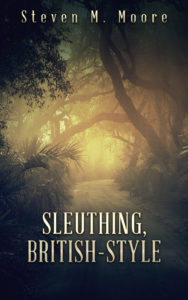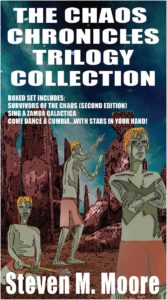“MacGyvered” and “pumpkin spice”…
No, this post isn’t about a racy pumpkin who’s become a spy! But you might be able to guess that the quotation marks indicate something unusual. If you do, you’re correct. This post is about English slang…or should I say American slang because I write British-style mysteries?
I’ve touched on dialects and slang in various posts here over the years and in my little course “Writing Fiction” (see the list of free PDF download on my “Free Stuff & Contests” web page). Are slang words dialect? Not really, but they can be part of dialect. English dialect is what’s used by a Cockney or a Texan, and Brits might think American English is a dialect of British English (and vice versa), but slang words can be taken from dialects and used in the principal language, or created and used singly, and not vice versa. I’m no linguist (okay, maybe every author is an amateur one, and I’m an author), but both slang words and dialects must drive professional editors nuts. First, how can they know if an author is using either one correctly? Second, how can readers wade through a novel filled with slang words and dialects they don’t completely understand?
The two items in the title are labeled as new slang and are now found in Merriam-Webster this September. “MacGyver” is a verb: To MacGyver something is to use common materials at hand to make something useful. Its origin is found in the first TV show of that name, which was much better than the second ever was with a better actor playing the main role, although people might only remember Richard Dean Anderson in Stargate. I’m not quite sure about the origins of “pumpkin spice”—I’d hate to think that it comes from that ubiquitous coffeeshop slop sold along with other horrible concoctions at Starbucks.
 The Brits have their own slang, of course, and, like American slang, it’s often regional. I include some of it in the list I started in the short fiction collection Sleuthing, British-Style and have carried over to the later novels of the “Esther Brookstone” series and those in the “Steve Morgan” stories. These lists are more for Americans who are unfamiliar with British slang words and dialect (like me!).
The Brits have their own slang, of course, and, like American slang, it’s often regional. I include some of it in the list I started in the short fiction collection Sleuthing, British-Style and have carried over to the later novels of the “Esther Brookstone” series and those in the “Steve Morgan” stories. These lists are more for Americans who are unfamiliar with British slang words and dialect (like me!).
But that’s all beside the point, isn’t it? Editors will still have those two worries indicated above, and authors should too. One only has to listen to Brits or Yanks to know the living language employed by them always has local variations and nuances. Using the latter adds some pumpkin spice to the dialogue in an author’s prose. Abusing them, though, might reduce the number of readers who can enjoy reading that prose.
As in most things associated with the art of creative writing, the Goldilocks Principle tells us what to do as authors: MacGyver your dialogue with snippets of slang and dialect but just enough to add pumpkin spice to the mix—not too little, not too much, but just enough.
***
 Comments are always welcome. (Please follow the rules listed on my “Join the Conversation” web page. If you don’t, your comment is classified as spam.)
Comments are always welcome. (Please follow the rules listed on my “Join the Conversation” web page. If you don’t, your comment is classified as spam.)
The Chaos Chronicles Trilogy Collection. This special 99-cent sale at Smashwords is better than my previous ones! And it ends Sept. 30. This ebook bundle contains three novels: Survivors of the Chaos, Sing a Zamba Galactica, and Come Dance a Cumbia…with Stars in Your Hand! You start your mind-blowing journey on a future Earth run by international mega-corporations and policed by their mercenaries, but a clever director of the interplanetary space agency refurbishes three long-haul space rigs and uses them to send colonists off to nearby stars. Those colonies become the salvation for humanity as human beings team up with good ETs to battle bad ones…and a collective super-intelligence that’s a bit ambivalent as a villain. But the worst enemy, a human, is yet to come; if this is my Foundation trilogy, he’s my Mule. Spanning thousands of years of future near-Earth history, these adventures in space and time will give you hours of sci-fi mysteries and thrills.
Around the world and to the stars! In libris libertas!
